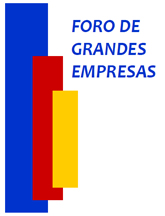What is the Large Business Forum?
Collaboration framework based on transparency and mutual trust


Background
The 2005 Tax Fraud Prevention Plan established, among its organizational measures to strengthen internal coordination and functional integration in the State Tax Administration Agency (hereinafter, the Tax Agency), the creation of a Central Delegation for Large Taxpayers as the sole interlocutor with the large companies affiliated to it. This meant a change in organisation and culture and a consolidated framework for relationships, although there was room for improvement.
To this end, the update of the Prevention Plan carried out in 2008 provided for the launch of a new type of cooperative relationship with a small number of large companies in two phases:
-
The creation of a discussion forum with large taxpayers in which the main problems that arise in the relationship between large companies and the tax authorities are analysed through joint or sectoral meetings and the extension of the cooperative relationship model is assessed.
-
The possible implementation of a special framework through which the Administration would provide, within a time frame in accordance with the needs of companies, a criterion on the tax consequences of their operations in exchange for complete transparency regarding them, provided that the companies that voluntarily accept this special framework offer all the information necessary for the Administration to establish its criterion.
The first of the above-mentioned phases was launched with the Large Business Forum.
Furthermore, the Agreement of the Council of Ministers of 14 August 2008 approved certain short-term measures to reduce the administrative burdens on companies, including the establishment of direct contacts with the Boards of Directors of large companies and the creation of a business forum to discuss the issues that may be of most interest to this type of taxpayer.
In this same sense, the OECD , in the Tax Administration Forum (Seoul, 2006 and Cape Town, 2008), reached the following conclusions:
-
It must be assumed that company management is responsible to all shareholders for ensuring good management of corporate activity, especially in the current times of global financial crisis.
-
Within management activity, the way of dealing with tax risk management can affect the financial results and reputation of the company. It is therefore considered that general management and boards of directors should increase their interest in tax risk management as part of corporate governance.
-
Tax authorities have a key role to play and must ensure that boards of directors are aware that they are ultimately responsible for tax strategies. It is claimed that tax authorities are, in this sense, strengthening relations with large companies, as a way to obtain numerous mutual benefits.
Furthermore, the Report of the special working group on good governance of listed companies of 19 May 2006 of the CNMV ("Code of Good Governance") indicated that the interest of shareholders provides a guide for action that must be developed while respecting the requirements imposed by law, for example, in tax regulations. In this regard, among the Recommendations made to the Audit Committee, the need was indicated for the risk control and management policy to identify at least the different types of risk (operational, technological, financial, legal, reputational...), as well as the information and internal control systems that will be used to control and manage the aforementioned risks, including contingent liabilities or off-balance sheet risks.
Finally, it should be noted that in 2008 a survey was conducted among companies affiliated with the Central Delegation of Large Taxpayers in which they stated that the Tax Agency offered good mechanisms for assistance in the preparation of tax returns, modern technology at the service of taxpayers and a positive and flexible attitude in the area of information and assistance. Thus, the assessment by large companies was generally satisfactory in the information and assistance actions and not so much in the area of control, where they believed that some improvements could be introduced.
Starting up
Within the indicated framework, a Large Business Forum was set up as a cooperative relations body to promote greater collaboration between large businesses and the State Tax Administration, based on the principles of transparency and mutual trust, through knowledge and sharing of problems that may arise in the application of the tax system.
In this regard, a group of companies affiliated with the Central Delegation of Large Taxpayers were contacted which, based on their turnover, volume of tax debt paid, volume of information provided to the tax authorities, number of employees, sector of activity and geographical distribution, were considered representative of all of them and susceptible to rapid dialogue for these purposes.
The initial participation of a small group of companies should in no way be interpreted as a sign of privilege for these participants with respect to other taxpayers, since, in any case, the agreements adopted in the Forum are of general application to all affected taxpayers.
Finally, it should be noted that the initial set of participants in the Forum may be modified in the future and even other forums may be created for specific territorial areas.
Rules of operation
The rules of operation, as well as the possible topics to be discussed within the Forum, are developed in the Forum's Rules of Operation.
The criteria underlying these Standards are the following:
-
The Forum has an informal, associative, flexible and de-bureaucratized character.
-
It works in Plenary Session and in Working Groups. The Plenary identifies the problems and adopts the agreements, and the Working Groups analyse the problems and propose solutions.
-
Participation in the Plenary Session is configured at the highest level of representation: Secretary of State for Finance and Budgets and Board of Directors of the AEAT on the one hand and members of the Boards of Directors of the companies on the other.
-
Participation in the Working Groups is established at a more technical and flexible level.